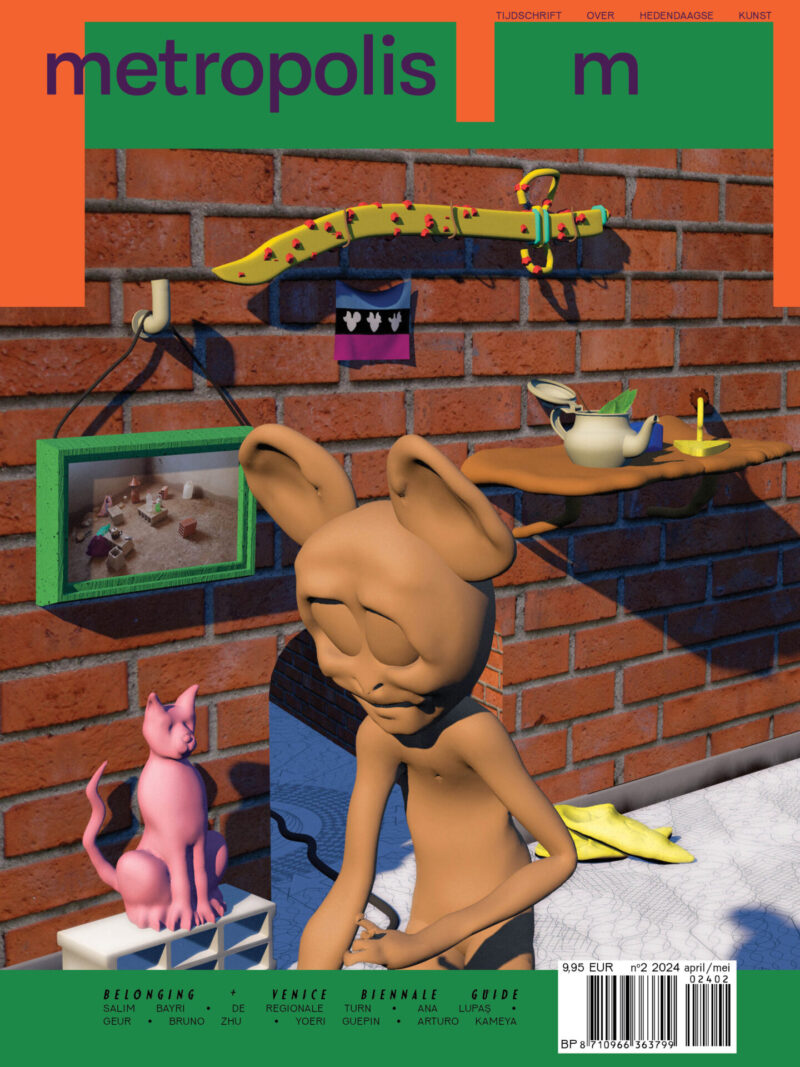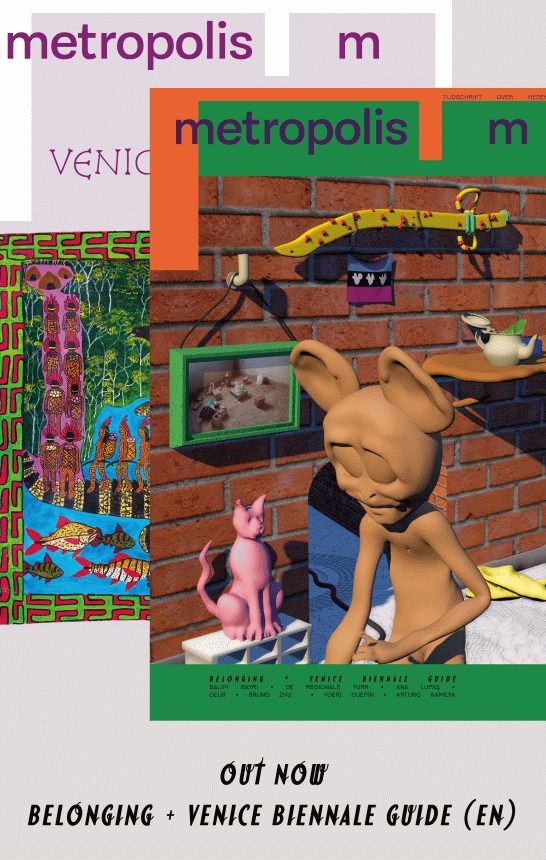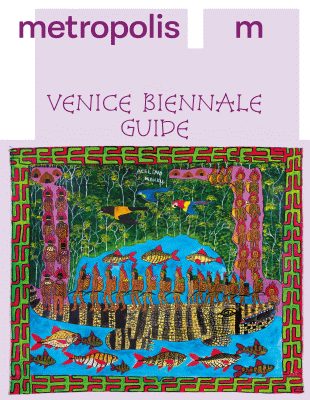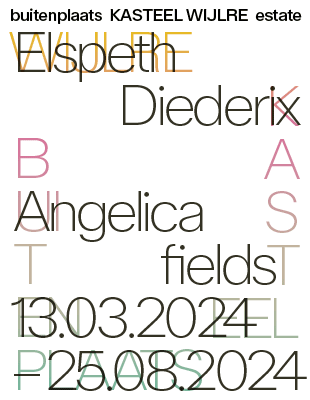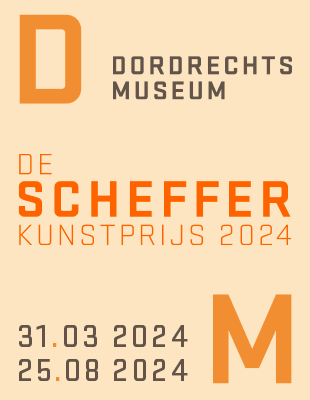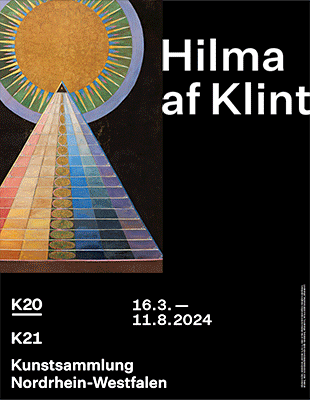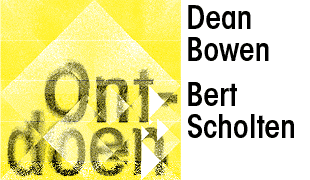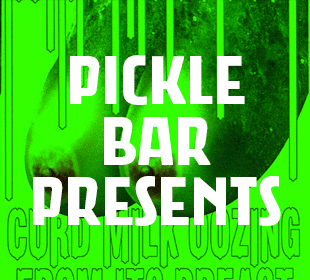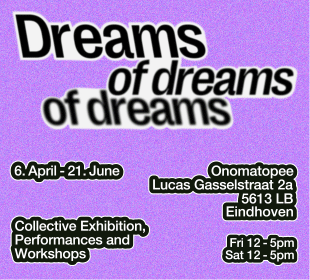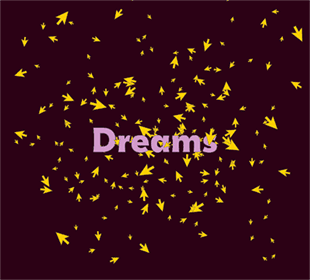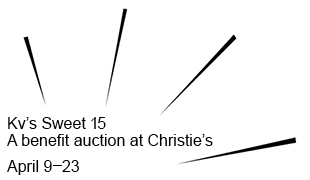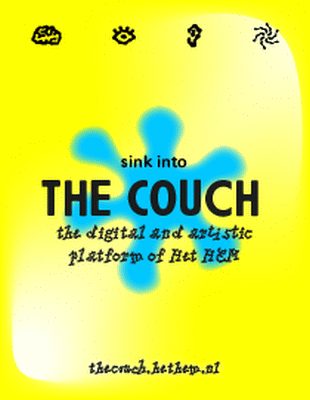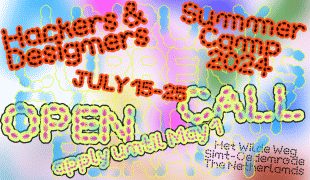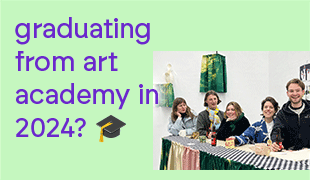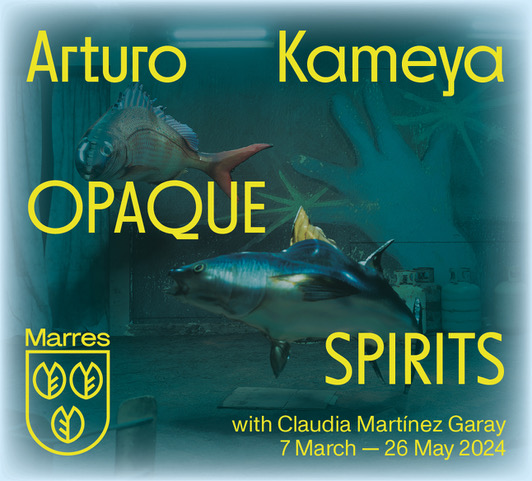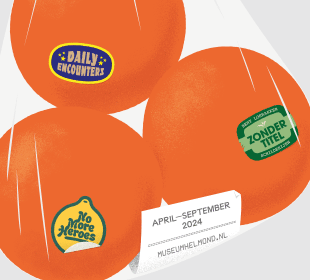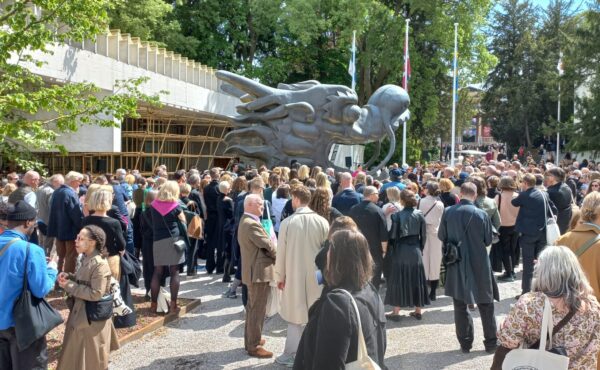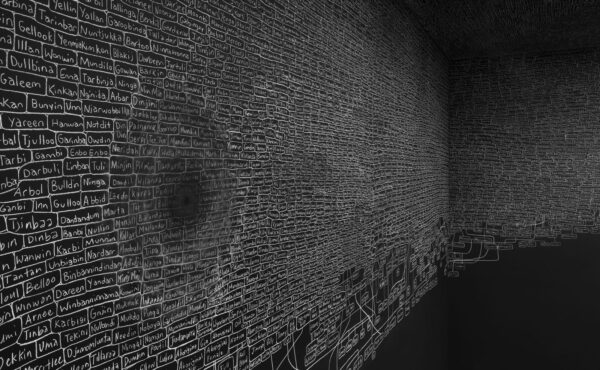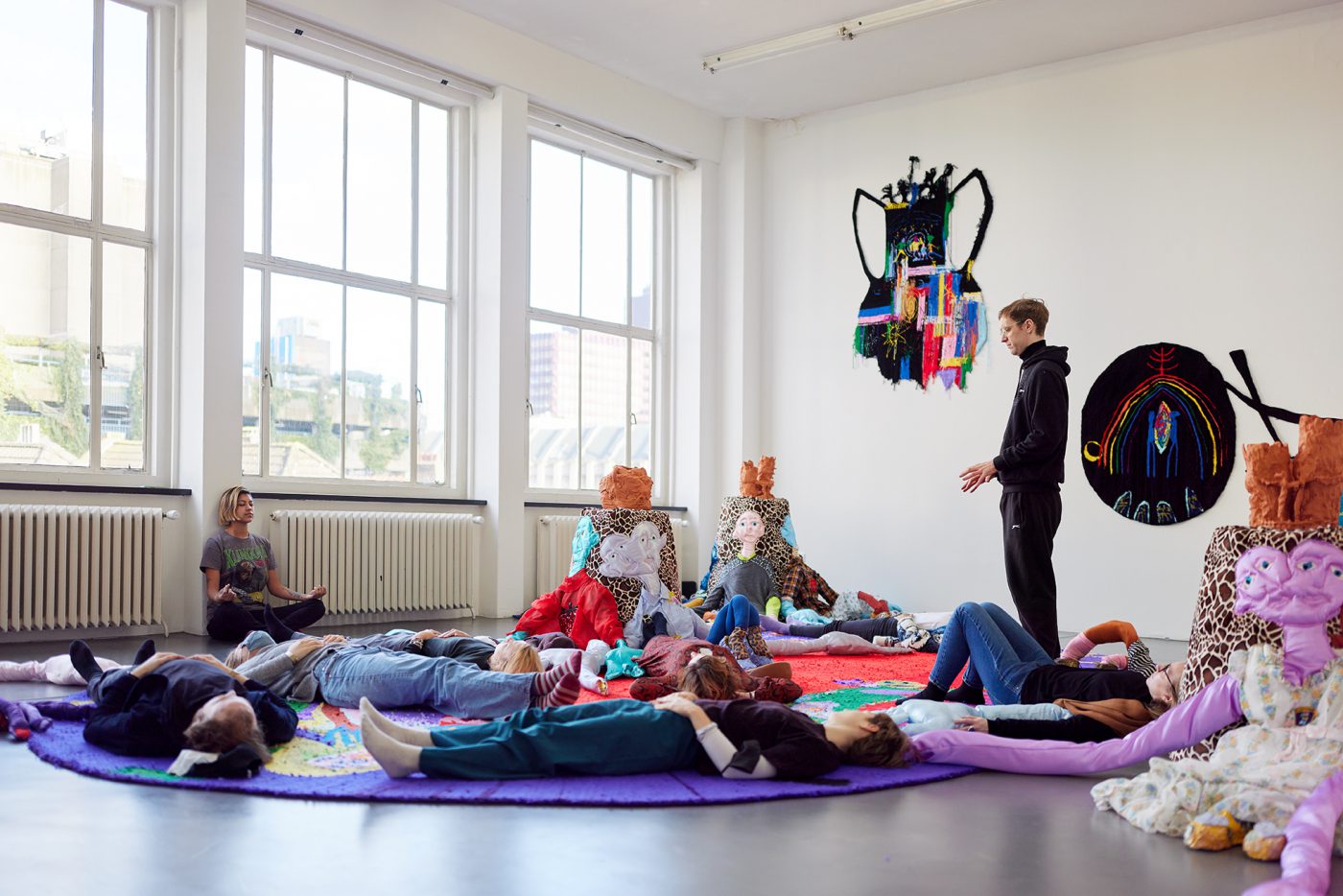
Forum: Altered States, Featuring Close Encounter: Treble Heaven, With Nisha Ramayya and MJ Harding. Set amongst the work of Afra Eisma. 2021, As part of the ongoing exhibition 84 Steps. Photo courtesy of Aad Hoogendoorn. 2021
Altered States – A review of Anne Boyer’s Keynote presentation: The Fallen Angel of the Senses
Kaylie Kist visits a lecture by author Anne Boyer on a day of presentations, workshops and healing sessions at Kunstinstituut Melly.
It’s early December 2021. I navigate my way to Rotterdam to attend a one-day event, Forum: Altered States at Kunstinstituut Melly. I’m wearing an obligatory face mask, keeping a safe distance, moving in silent formation, to reach the promise of closer proximity through other kinds, of maybe more intimate journeys. The schedule for the day; a constellation of Close Encounters, including body workshops, guided meditation, image lectures, song, talks, infused foods culminating in a keynote presentation by poet and essayist, Anne Boyer.
The Forum: Altered States inhabits the framework of the 84 Steps exhibition, meeting at the intersection of art and education the program gives special attention to issues surrounding mental health. It also coincides and runs in parallel with Ignota Books’ launch of a poetry anthology, bearing the same title. The book explores altered states of consciousness, through multiple perspectives; Artificial intelligence, dreams, grief, psychedelic’s, rituals, and journeys. Each topic investigates the ability to provoke our senses, examining if altered states have the ability to produce altered worlds.
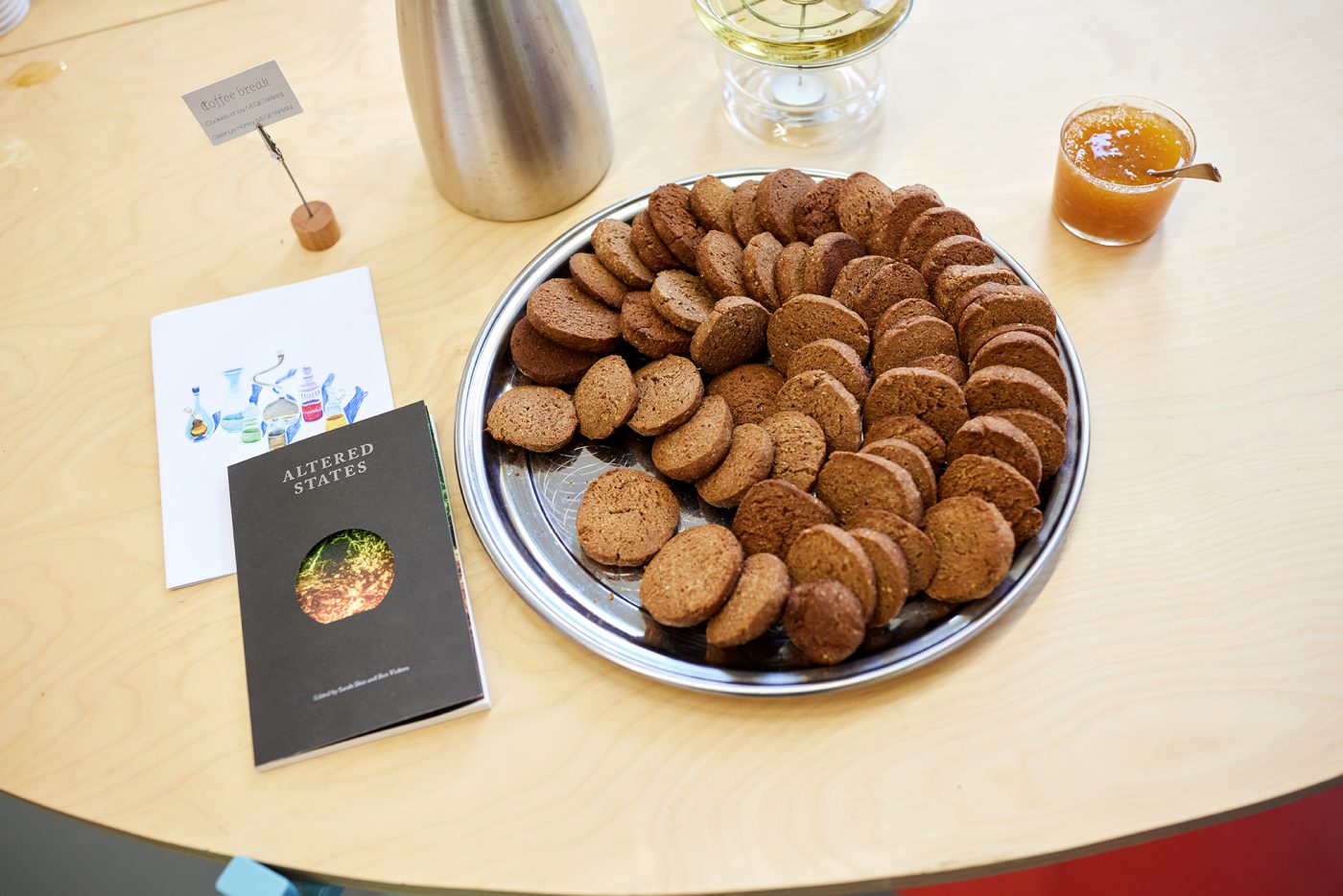
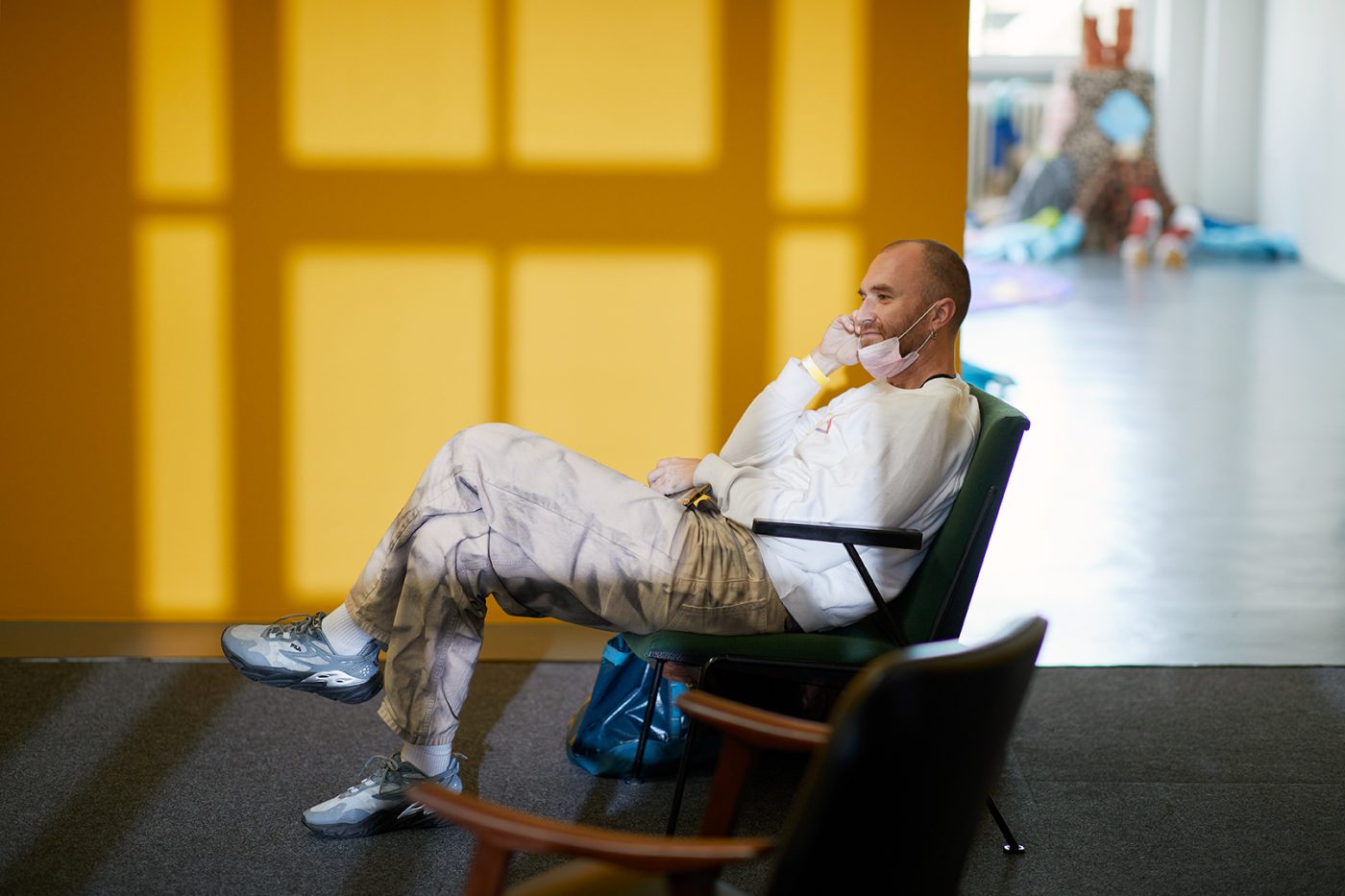
Visitor of Forum: Altered States, Featuring Close Encounter, As part of the ongoing exhibition 84 Steps. Photo courtesy of Aad Hoogendoorn. 2021
The ever-morphing, Covid pandemic brings its own alterations to the program. Due to corona-related travel uncertainties, the presence of Boyer is mediated through a screen, the audience reduced in number, we are spaced out in the physical sense, the distance between us is magnified. The ever-present energy of Vivian Ziherl, Research and Programs Manager at Kunstinstituut Melly mediates these spaces, times zones and modes of presence. Ziherl, likens the scene to a séance, Zoom conjures Boyer into being, she appears, not once but twice, channelled by two projections, one either side of the room.
Boyer conveys both the irony and her disappointment at not being physically present, pointing to the pandemic, which has intensified and expanded that relation of the screen dominated world.
“There’s little choice, this is where you go to work, this is where you go to school, to the doctor, where you seek love where you express resentment where you enact revenge, the screen has become too often the last site of the dying.”
As Boyer set’s-up the presentation, she calls on all her micro senses, to uncover what it means to inhabit the ‘information-damaged sensorium’ of late capitalist modern consciousness. Boyer’s words echo an earlier encounter, Lisa Tan’s poignant image lecture, Dodge and Burn, a 19-minute mediation on burnout, the anticipation of an explosion, of failure, and the repetitive journey of return. This work is a persuasive prelude when considering our damaged sensorium.
The title for Boyers keynote is drawn from Helen Keller’s 1904, phenomenological account of the minor senses, The World I live in. She likens the fallen angel of that to those minor senses; touch, taste, and smell, which have become all too increasingly exiled. In biographical form, Keller explores the fleeting and the ephemeral, concentrating on sensation; the touch of faces under her fingers, the scents from her childhood, and sounds from her dreams, these spectrums of experience lie open to her, translated through both the medium of language and her practice of optimism.
In this way, Boyer uses the corporate form of a keynote as a biographical journey of sorts, engaging a set of material, literary, historical and spiritual practices, woven together with personal life experiences, she begins to exhume her plundering appreciation of smell and touch. Boyer tries to chart a possible way forward using poetry, and her cellular investigation into the scent and pigment of flowers and plants. For Boyer, flowers become tactile tools to not only navigate the treasures of sensory experience but to actively alter burnt-out states of perception. Boyer speaks to us by speaking through nature, expertly capturing the sentiment and fragility of our time.
“I extracted scent molecules with steam capture and solvent distillation, brown pigment from roots to alum, and released the pigment again from its metals. I learned about the tan that leaves as it meets the liquor of transmission and the shared molecules of scent between a Jasmine blossom and a corpse. …the point of all this wasn’t anything like fixity but it was about fading, that is, I made everything strictly impermanent. It was about all the things that fade away, and through that, I learned about the geologies of plants, which were much more geologic than I’d ever imagined… what I learned was a different relationship to time and complexity and it’s through them and in them that I tried to map a corner of refusal to the sensory regime of the present.”
The mercy of impermanence, that for which this digital world, these screens won’t allow, is a topic to which Boyer returns. “The screen has no perfume, and it has no mercy. That is, it has little access to what is worthwhile and what fades away.” She points to the intensification of conceptual regimes of metadata, the cloud, and how algorithms have hijacked serendipity. In these senseless times when humans have been reduced into chunks of nonsensical information, she cultivates her research and reasoning.
“The forming of the five senses is a labour of the entire history, we now face a decay and deformation of the present arrangement of the world and all in it. Our senses are hyper, extended or fractured, our minor senses have become wrapped up in the demands of the capitalist organisation of life.”
As Keller, Boyer also uses the two anchors of optimism — hope in one’s inner life and the outer world, not through rose-tinted spectacles, but in glaringly conscious recognition. Entangled, interior and exterior spaces co-exist, ideas grow, the space of this keynote feels more like a garden, each word, a seed of knowledge, each appreciation of sense is intricately sewn, and carefully nurtured into being, bringing flashes of colour, that fade with the flow with each sentence, and remain unforgettable in their fleeting beauty of perception.
When contemplating writing, Boyer sees this practice of extracting scent and pigment as an allegorical response, a way of interpreting and translating ideas, she explains that reading this way is like performing a critical engagement via the sense of smell. Her dream, she says, is to take each poem and translate it into the experience of scent, rationalising her optimism through language, its ability to express pain and vulnerability and what it can achiever in moving us closer to the scent of being.
Whilst Boyer openly admits she’s unsure of her stance on the angelic order, she is certain that listening to “the cellular gossip of plants”, has the transformative power to access one’s sensory consciousness. Her devout belief in this act as an altered state is her attempt to evade the rapid, seemingly unstoppable amplification of information damaged life.
“Angels leave no artefacts and no archives, winged things, fragrances, fugitive pigments, flowers act on us primarily in the vertical instance, not in the horizontal expansiveness of time.”
I’m left contemplating the aim of this forum. Virus, infection, illness both mental and physical have indeed the concrete ability to manifest altered states and altered worlds
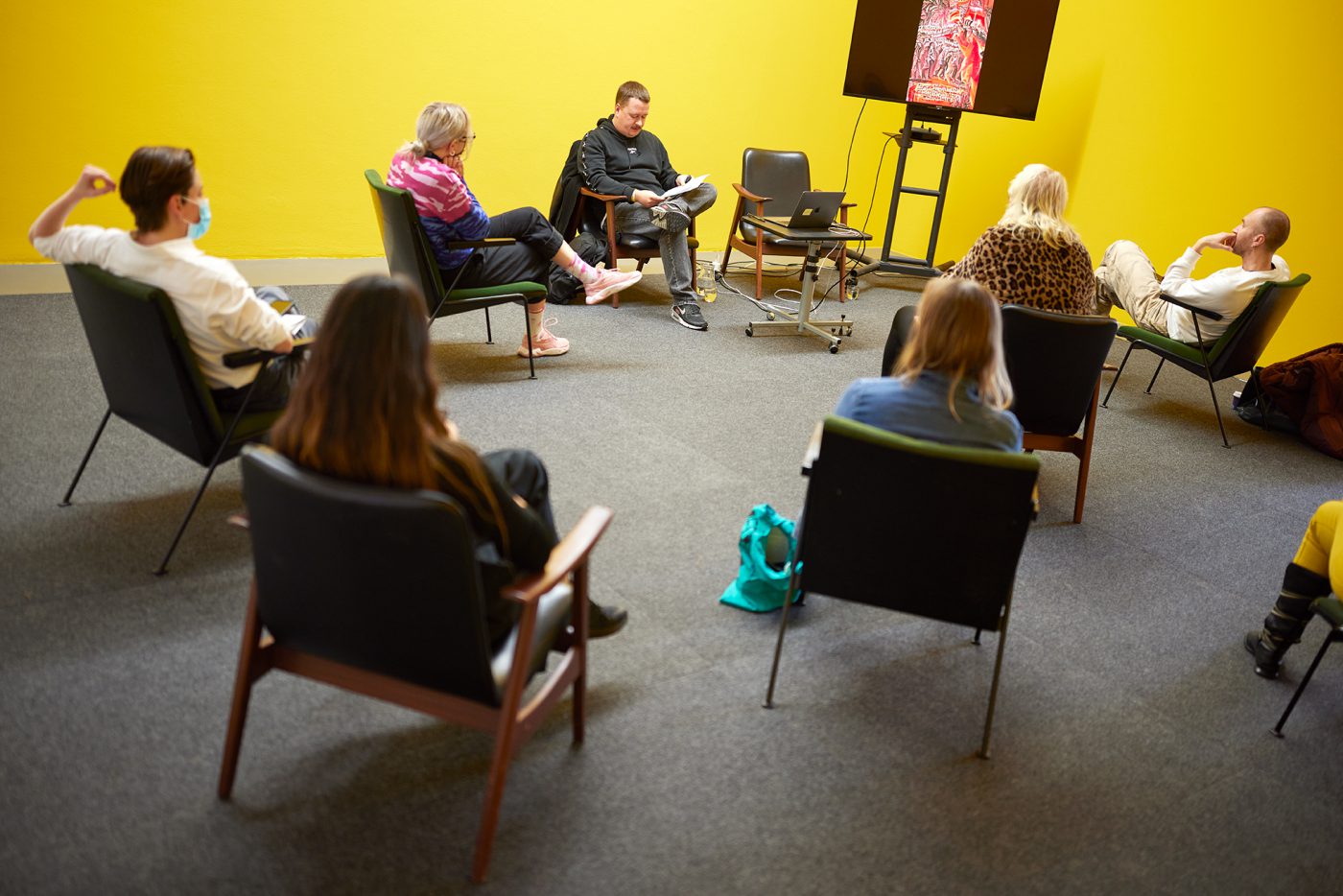
Forum: Altered States, Featuring Close Encounter, As part of the ongoing exhibition 84 Steps. Photo courtesy of Aad Hoogendoorn. 2021
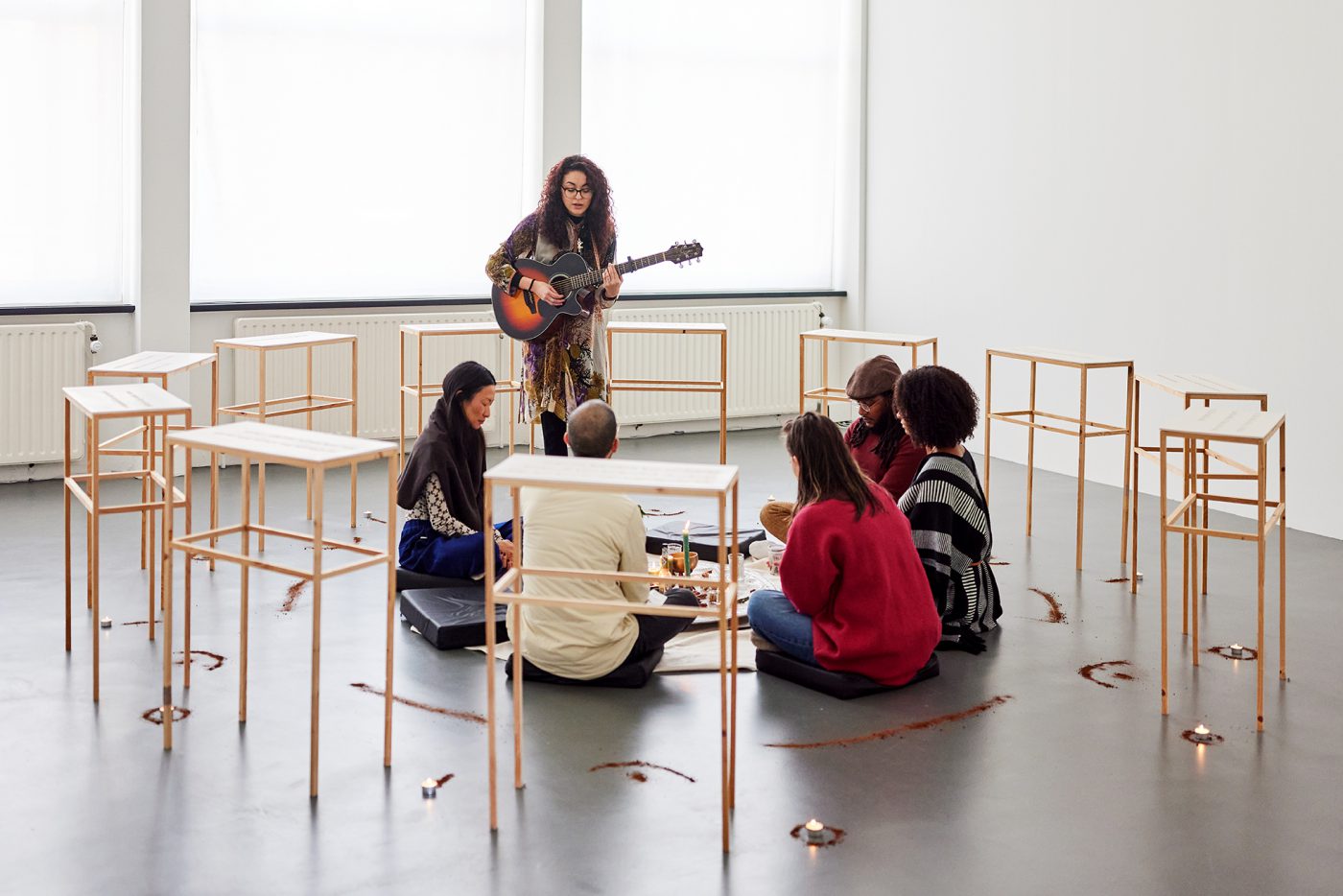
Workshop at Forum: Altered States, Featuring Close Encounter, As part of the ongoing exhibition 84 Steps. Photo courtesy of Aad Hoogendoorn. 2021
Altered states have the capacity to heal or to further harm the world, within nature ephemeral beauty is intensified through seasonal changes and the cyclic certainty of decomposition and growth. The digital world expels our senses, like a fallen angel, we are cast out, exiled from our consciousness or at best our conscious state is reduced or restrained.
I’m left contemplating the aim of this forum. Virus, infection, illness both mental and physical have indeed the concrete ability to manifest altered states and altered worlds. Maybe, through the practice of optimism, using tools such as art, poetry and sound we might, albeit temporarily, alter our worlds. Amongst the fleeting, immeasurable and maybe microscopic encounters we could nurture our refusals against the hierarchies of sensory oppression, find fertile grounds for rehabilitation, in the determined hope it will bring us all, back to our senses.
Forum: Altered States, Kunstinstituut Melly, Rotterdam. Formed part of an ongoing exhibition, 84 Steps
Showing until March 20, 2022. Anne Boyer’s Keynote: The Fallen Angel of the Senses, can be viewed in full @ https://www.kunstinstituutmelly.nl/en/engage/1189-forum-altered-states-keynote-performance
Kaylie Kist
is an artist and writer